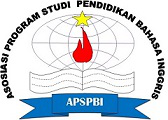THE GENRE APPROACHES FOR TEACHERS’ STRATEGY TO DELIVER PRODUCTIVE TEACHING-LEARNING IN ENGLISH SUBJECT AT SMAN 1 KOTA LANGSA
Abstract
Keywords
Full Text:
PDFReferences
Agesta, S., & Cahyono, Bambang Yudi, Prof. Ph. D. (2017). EFFECT OF PROCESS-GENRE APPROACH ON THE INDONESIAN EFL WRITING ACHIEVEMENT ACROSS PERSONALITY. International Journal of English Language and Linguistics Research, 5(3), 39–48.
Aleksandrzak, M. (2018). Genre-Based Approaches in Teaching and Learning. Neofilolog, 2(51), 137–151. https://doi.org/http://dx.doi.org/10.14746/n.2018.51.2.2
Ali, A. (2022). Critically reflective practice in visual communication design teaching for higher education undergraduate program. International Journal of Technology and Design Education, 32(2). https://doi.org/10.1007/s10798-020-09626-6
Amjadiparvar, A., Maftoon, P., & ... (2018). The Effect of System-Nested, Genre-Oriented, Structurally-Mediated Model (SGSM) of Writing Instruction, and Swalesian Model (SM) upon Iranian Learners’ Writing …. Issues in Language ….
Basturkmen, H. (2012). A genre-based investigation of discussion sections of research articles in Dentistry and disciplinary variation. Journal of English for Academic Purposes, 11(2). https://doi.org/10.1016/j.jeap.2011.10.004
Canagarajah, S. (2016). TESOL as a Professional Community: A Half-Century of Pedagogy, Research, and Theory. TESOL Quarterly, 50(1), 7–41. https://doi.org/10.1002/tesq.275
Charles, M. (2022). EAP research in BALEAP 1975–2019: Past issues and future directions. Journal of English for Academic Purposes, 55. https://doi.org/10.1016/j.jeap.2021.101060
Chik, A., Aoki, N., & Smith, R. (2017). Autonomy in language learning and teaching: New research agendas. In Autonomy in Language Learning and Teaching: New Research Agendas. https://doi.org/10.1057/978-1-137-52998-5
Fatjriya, M. H., Tahrun, & Sari, A. P. (2021). The Effects of a Genre-Based Approach and Learning Encouragement on the Writing Achievement of Eighth-Grade Students at SMP Negeri 3 Air Kumbang. Proceedings of the International Conference on Education Universitas PGRI Palembang (INCoEPP 2021), 565(INCoEPP), 1305–1310. https://doi.org/10.2991/assehr.k.210716.261
Fortanet-Gómez, I., & Beltrán-Palanques, V. (2022). Enhancing multimodal communicative competence in ESP: The case of job interviews. Multimodal Communication, 11(1). https://doi.org/10.1515/mc-2020-0032
Gandana, I., Nafisah, N., & Imperiani, E. (2021). Critical thinking, literature and teachers’ instructional activities: An Indonesian case of community service program for English teachers. English Language Teaching Educational Journal, 4(2), 138. https://doi.org/10.12928/eltej.v4i2.4279
Irianto, N. andesta, Imranuddin, & Syafrizal. (2019). Journal of English Education and Teaching (JEET) e-ISSN: 2622-5867. Journal of English Education and Teaching )JEET), 3(4), 522–532.
Irmawati, D. K., Asri, T. M., & Aziz, A. L. (2021). How efl teachers deal with pedagogical competence development for the teaching of writing: A study on higher educational level in indonesian context. Journal of Education and E-Learning Research, 8(1), 42–51. https://doi.org/10.20448/JOURNAL.509.2021.81.42.51
Irmawati, D., Widiati, U., & Cahyono, B. (2017). How Do Indonesian Professional English Teachers Develop Their Pedagogical Competence in Teaching Implementation? Arab World English Journal, 8(2), 293–307. https://doi.org/10.24093/awej/vol8no2.21
Iskandar, A. S., Fitriani, S. S., Patak, A. A., & Weda, S. (2015). Students’ perspectives on genre approach in the ‘Neglected Communicative Event:’ Script defense examination in English Departmen. 1–18.
Jacobvitz, D., Curran, M., & Moller, N. (2002). Measurement of adult attachment: The place of self-report and interview methodologies. Attachment and Human Development, 4(2), 207–215. https://doi.org/10.1080/14616730210154225
Kadwa, M. S., & Alshenqeeti, H. (2020). International Journal of Linguistics, Literature and Translation (IJLLT) The Impact of Students’ Proficiency in English on Science Courses in a Foundation Year Program. International Journal of Linguistics, Literature and Translation (IJLLT), 3(11), 55–67. https://doi.org/10.32996/ijllt
Lie, A., Tamah, S. Mi., Trianawaty, Triwidayati, K. R., & Jemadi, F. (2019). English Proficiency of Secondary School Teachers in Indonesia. TEACHERS ENGLISH PROFICIENCY English, 7(2), 86–87.
Majid, M. A. A., Othman, M., Mohamad, S. F., Lim, S. A. H., & Yusof, A. (2017). Piloting for Interviews in Qualitative Research: Operationalization and Lessons Learnt. International Journal of Academic Research in Business and Social Sciences, 7(4), 1073–1080. https://doi.org/10.6007/ijarbss/v7-i4/2916
Marlisa Aini, R., Muslem, A., & Usman, B. (2020). Lecturers’ Strategies Used in Teaching English Reading Comprehension: a Case At a Private College in Aceh. Humanities & Social Sciences Reviews, 8(3), 20–30. https://doi.org/10.18510/hssr.2020.833
Nordin, S. M., & Mohammad, N. (2006). THE BEST OF TWO APPROACHES: PROCESS/ GENRE- BASED APPROACH TO TEACHING WRITING. The English Teacher, XXXV, 75–85. http://www.melta.org.my/ET/2006/2006_6.pdf
Paltridge, B. (2014). Genre and second-language academic writing. Language Teaching, 47(3). https://doi.org/10.1017/S0261444814000068
Pathak, D. N. (2022). Idea of Pandemic-Pedagogy: Reflexive Rumination on Teaching and Learning Practices. Higher Education for the Future, 9(1). https://doi.org/10.1177/23476311211046184
Priyadi, M., Sarwa, Lisyanto, & Basuki, N. (2021). Indonesian Teacher’s Competencies Profile According to the SAMR Model Framework. Journal of Physics: Conference Series, 1842(1). https://doi.org/10.1088/1742-6596/1842/1/012083
Pufahl, I., & Swales, J. M. (1993). Genre Analysis: English in Academic and Research Settings. Language, 69(1). https://doi.org/10.2307/416471
Querol-Julián, M., & Beltrán-Palanques, V. (2021). Pechakucha presentations to develop multimodal communicative competence in esp and emi live online lectures: A team-teaching proposal. CALL-EJ, 22(2).
Riadi, A. (2019). An Empirical Studies on Indonesian English-Curriculum Changes: Opportunities and Constraints in an Underdeveloped Region. Indonesian TESOL Journal, 1(2). https://doi.org/10.24256/itj.v1i2.835
Rosa, G. G., Lima, N. W., & de Holanda Cavalcanti, C. J. (2022). Different propositions of the uncertainty principle for position and momentum: integrating mathematical formalism, phenomenology and interpretations in the teaching of quantum theory. Revista Brasileira de Ensino de Fisica, 44. https://doi.org/10.1590/1806-9126-RBEF-2021-0298
Samad, I. A., & Adnan, Z. (2017). Using a Genre-Based Approach To Prepare Undergraduate Students for an English Thesis Defence Examination: an Experimental Study To Address the ‘Pedagogical Controversy.’ Linguistik Indonesia, 35(1), 75–93. https://doi.org/10.26499/li.v35i1.56
Sariakin. (2021). CLASSROOM MANAGEMENT STRATEGY OF TEACHING ENGLISH PRONUNCIATION TO YOUNG LEARNERS. Jurnal Real Riset, 3(2021), 280–285. https://doi.org/10.47647/jrr
Sholokhova, S. (2022). Phenomenological interviews in learning and teaching phenomenological approach in psychiatry. In Phenomenology and the Cognitive Sciences (Vol. 21, Issue 1). https://doi.org/10.1007/s11097-021-09798-z
SULTAN, A. I., & S. IRHAYYIM, N. (2022). AN INVESTIGATION OF GENRE-BASED TEACHING ON STUDENTS’ UNDERSTANDING OF ADVERTISEMENT. RIMAK International Journal of Humanities and Social Sciences, 04(02). https://doi.org/10.47832/2717-8293.16.29
Thomas, E., & Magilvy, J. K. (2011). Qualitative Rigor or Research Validity in Qualitative Research. Journal for Specialists in Pediatric Nursing, 16(2), 151–155. https://doi.org/10.1111/j.1744-6155.2011.00283.x
Uday, Y. (2019). Genre Based Approach for Teaching of English. Aayushi International Interdisciplinary Research Journal (AIIRJ), 6(June), 1–6. www.aiirjournal.com
Ulfa, M., & Bania, A. S. (2019). EFL student’s motivation in learning English in Langsa, Aceh. Studies in English Language and Education, 6(1), 163–170. https://doi.org/10.24815/siele.v6i1.12860
Wang, G. (2021). Genre-Based Approach in Business Translation Teaching. Review of Educational Theory, 4(2). https://doi.org/10.30564/ret.v4i2.3019
Xu, X., & Li, X. (2018). Teaching academic writing through a process-genre approach: A pedagogical exploration of an EAP program in China. Tesl-Ej, 22(2), 1–21.
Yusuf, Q., Asyik, A. G., Yusuf, Y. Q., & Rusdi, L. (2017). Listen, do, repeat, understand and remember: Teaching English to very young children in Aceh. Iranian Journal of Language Teaching Research, 5(2), 113–132.
Zhang, Y. (2018). Exploring EFL Learners’ Self-Efficacy in Academic Writing Based on Process-Genre Approach. English Language Teaching, 11(6), 115. https://doi.org/10.5539/elt.v11n6p115
DOI: http://dx.doi.org/10.20527/jetall.v5i2.13425
Article Metrics
Abstract view : 306 timesPDF - 202 times
Refbacks
- There are currently no refbacks.
This journal is indexed in:


This Journal is listed in:
 Journal of English Teaching, Applied Linguistics and Literatures (JETALL)
Journal of English Teaching, Applied Linguistics and Literatures (JETALL)








.png)



1.png)
